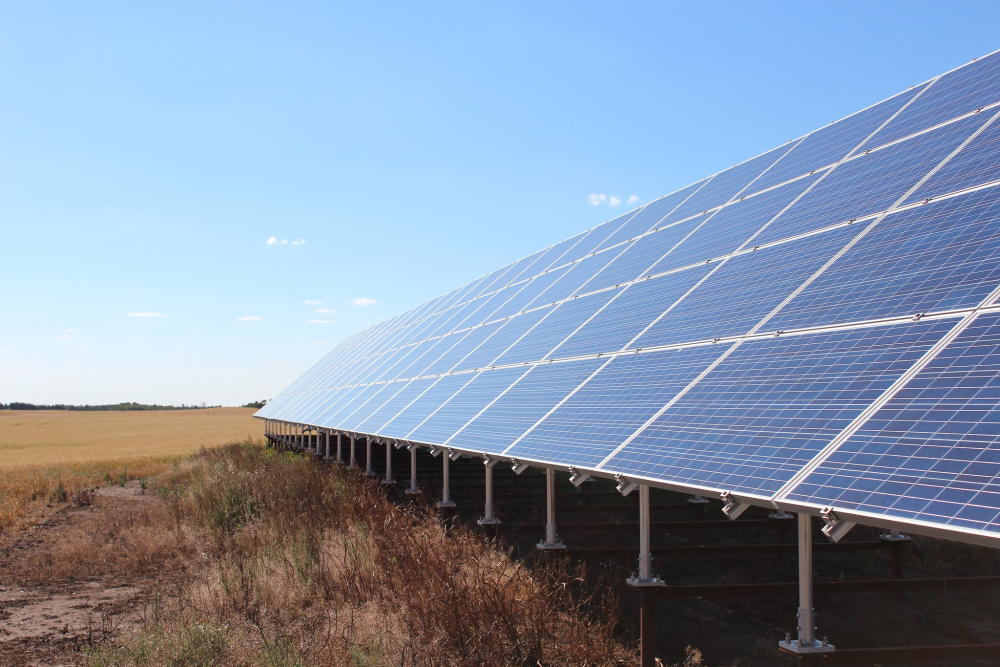CALGARY — Paired with battery storage and energy efficiency, electricity from solar and wind is now capable of generating electricity with the same reliability and lower cost than gas plants, even in Alberta where natural gas is relatively inexpensive.
That is the finding of new research released today by the Pembina Institute, a national, non-partisan think tank that advocates for effective policies to support Canada’s transition to clean energy.
Pembina found that clean energy portfolios — which include solar, wind, battery storage, energy efficiency and demand flexibility — provide the same services as new gas plants even in peak demand scenarios.
Pembina says this economic analysis is especially critical at a time when governments are preparing to replace polluting coal plants, or to meet changing demands of the electricity system, and are choosing between high- and low-carbon options.
The study was conducted in Alberta, which has comparatively low natural-gas costs, and offers strong support to the oil and gas industry. Researchers also took into consideration Alberta’s abundant renewable energy resources.
The analysis, which uses modelling provided by the Rocky Mountain Institute, shows that when the lifetime output from portfolios of renewable energy is compared against the energy generated at gas plants, the renewable energy will cost $9 to $24 less per megawatt hour than energy from gas plants that generate power on a steady basis and those producing it at peak hours.
Much of the savings are due to the dramatic decline in the costs of wind, solar, and storage in recent years.
Pembina says the cost of renewables and storage is expected to continue to drop while the technology improves even further.
Pembina compared the costs of renewable energy with gas plants in just one province, but the positive results show the need to conduct further analysis in Saskatchewan, New Brunswick and Nova Scotia. All of those provinces, like Alberta, will be considering new energy options as coal plants are phased out over the next decade.
Quick facts
- Canada has committed to phasing out heavy-polluting coal power by 2030, which opens space for renewable energy.
- The technology prices of wind, solar, battery and energy storage have fallen by 66 per cent, 86 per cent, and 73 per cent respectively since 2009-10.
- Data from 2017 suggest wind and solar power sources are already more economical to run than coal- or nuclear-power plants.
- Case studies from the United States have found that investing in clean energy portfolios rather than natural gas plants would save customers more than $29 billion per year, and cut carbon emissions by 100 million tons.
Quotes
“This study proves Canadians don’t need to make financial sacrifices when choosing clean, renewable sources of electricity — the low-carbon option is cheaper for consumers, without subsidies, and delivers the same services as natural gas. This is a game changer. Clean energy portfolios are reliable, economically viable and technologically practical. And that will be good for our wallets as well as for human health and the health of the planet.”
- Josha MacNab, national strategy director, Pembina Institute
“Along with providing affordable electricity to Albertans, clean energy portfolios offer employment and economic development opportunities that should be paired with training and support programs so Albertans have careers in the rapidly expanding global clean energy industry. This economic analysis shows how Alberta can diversify its energy supply and be better positioned to profit from the 21st century decarbonized economy.”
- Duncan Kenyon, Alberta director, Pembina Institute
“Across Alberta, municipal leaders want to bring the benefits of renewable energy development to their communities. This study proves they are on the right path since the clean energy portfolios provide the same services at a lower cost for their constituents. It’s reliable, even when the sun isn’t shining and the wind isn’t blowing.”
- Binnu Jeyakumar, clean energy director, Pembina Institute
[30]
Visit pembina.org to download a copy of Reliable, affordable: The economic case for scaling up clean energy portfolios
Contact
Sarah MacWhirter
Communications director
416-389-7465
Background
Blog: Corporate renewables buyers have their eyes on Alberta (September 2019)
Blog: Clear appetite for alternative energy among Alberta municipalities and businesses (May 2019)
Reacts: Alberta’s Renewable Energy Procurement auction: Smart policy delivers good news (December 2018)




